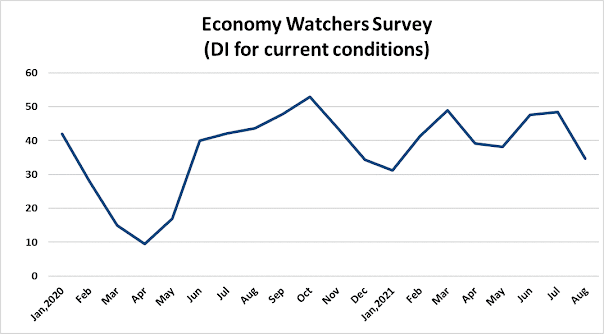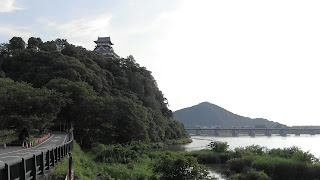Japan's Economy: COVID-19 state of emergency was lifted in Japan but industries are still facing bleak business conditions
Incoming Japanese PM stimulates the economy with COVID-19 state of emergency covering Japan lifted
The Japanese government has lifted the COVID-19 state of emergency covering Tokyo and 18 other prefectures, as well as the quasi-state of emergency in other areas on September 30, as new cases have declined from their peak.
From October 1, none of the country's 47 prefectures is under a state of emergency nor quasi-state of emergency for the first time since April 4. Now restaurants and other dining establishments are allowed to serve alcohol until 8 p.m. and remain open until 9 p.m. as long as they take anti-virus measures.
If infections settle down further, all regulations are
expected to be eliminated in the months to come. Kishida, who will be named as Prime
Minister in the Diet on October 4, thanks to the LDP-led coalition power to control
both chambers said he envisions a further easing of restrictions around
November when more people have been fully vaccinated. He is also widely
expected to compile a sizable fiscal package of more than 30 trillion yen by
the year end to shore up Japanese economy hit hard by the pandemic.
Tankan survey shows business sentiment improved although the outlook for the next quarter deteriorates
The Bank of Japan's latest Tankan survey shows business sentiment in September of large manufacturers improved for the fifth straight quarter. The reading for sentiment at large manufacturers rose 4 points to plus 18. The mood mainly improved among makers of materials such as iron and steel, and chemicals. They passed on higher prices of raw materials including crude oil in the prices of their products.
On the other hand, sentiment among automakers fell sharply to minus 7. They had to reduce production as manufacturing of chips and other parts stalled due to coronavirus-related lockdowns in Southeast Asia. The index for large manufacturers is expected to worsen, indicating that the improvement in sentiment is stalling. The outlook reading for the next quarter dropped 4 points to plus 14. The incremental prices of raw materials and food, energy are also hurting both business and consumer sentiments.
Japanese working people are pessimistic about the economy with Japan's trade balance in August posting a deficit for the first month in three months
According to the Economy Watchers Survey by the Cabinet Office, which gauges sentiment of more than 2,000 workers such as taxi drivers, hotel workers and restaurant staff, the index showing the current state of the economy in August deteriorated to 34.7, down 13.7 from the previous month.
The Economy Watchers Survey measures business confidence among 2,000 working people how they feel about the current economy compared to three months ago. The index deteriorated for the first time in three months with the second largest decline since the spread of the infection after the state of emergency was extended to contain the spread of the new coronavirus.
Although the fourth state of emergency was lifted at the end of September in all areas, sales in service industries such as restaurants and travel agencies had been dented every time when the state of emergencies were issued.
A person involved in leisure facilities in the Chubu region commented, "Those industries are facing bleak business conditions because the number of visitors dropped sharply due to the several long lasting rains and declarations of emergencies during their tourist high season."
A department store official also expressed concern that "vaccination is progressing, but as the number of infected people remains plateaued, people are discouraged to go out making autumn and winter clothing sales difficult."
Based on analysis of the results of this survey, the Cabinet Office has revised downward its judgment on the current state of the economy. As for prospects of business conditions in two to three months, the index indicating future outlook continued to be sluggish, down 4.7 points from the previous month to 43.7.
Furthermore, according to the Ministry of Finance's announcement, Japan's trade balance in August posted a deficit of 635.3 billion yen. The trade deficit is the first in three months as imports surged due to rising crude oil prices. Incremental crude oil price often depresses Japanese economy as it erodes the profits of Japanese companies.






Comments
Post a Comment